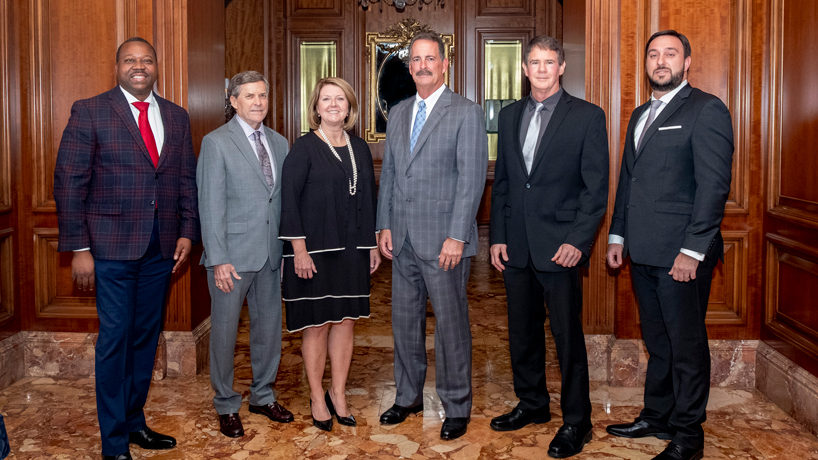Sara Foster, Patrick Gadell, Orvin Kimbrough, Tom Migneron, Gary Morse and Luigi Wewege were honored during the event last week at the Ritz-Carlton in Clayton.


Sara Foster, Patrick Gadell, Orvin Kimbrough, Tom Migneron, Gary Morse and Luigi Wewege were honored during the event last week at the Ritz-Carlton in Clayton.
Sara Foster, Patrick Gadell, Orvin Kimbrough, Tom Migneron, Gary Morse and Luigi Wewege were honored during the event last week at the Ritz-Carlton in Clayton.
Sara Foster, Patrick Gadell, Orvin Kimbrough, Tom Migneron, Gary Morse and Luigi Wewege were honored during the event last week at the Ritz-Carlton in Clayton.
Kaji, whose parents traveled from Japan for the UMSL commencement ceremony in May, wants to use her accounting degree to advance the cause of conservation biology.

A multi-year study recently completed by researchers in the Center for Business and Industrial Studies at the University of Missouri–St. Louis found that credit bureau data are sufficiently accurate to support institutions in issuing and managing credit, but a small percentage of individual consumers can be harmed significantly by errors in their files. The $1.13 million study, commissioned by the U.S. Federal Trade Commission, to record the accuracy of information maintained by the major U.S. credit reporting agencies, was conducted by L. Douglas Smith, director of the Center for Business and Industrial Studies and professor of management science at UMSL; Thomas Eyssell, associate dean and director of the College of Business Administration’s registered Financial Planning program; Maureen Karig, senior research associate with the Center for Business and Industrial Studies at UMSL; Mike Staten, professor at University of Arizona in Tucson; graduate researchers at UMSL and UA, and professionals and senior economists at Fair Isaac Corporation.
A multi-year study recently completed by researchers in the Center for Business and Industrial Studies at the University of Missouri–St. Louis found that credit bureau data are sufficiently accurate to support institutions in issuing and managing credit, but a small percentage of individual consumers can be harmed significantly by errors in their files. The $1.13 million study, commissioned by the U.S. Federal Trade Commission, to record the accuracy of information maintained by the major U.S. credit reporting agencies, was conducted by L. Douglas Smith, director of the Center for Business and Industrial Studies and professor of management science at UMSL; Thomas Eyssell, associate dean and director of the College of Business Administration’s registered Financial Planning program; Maureen Karig, senior research associate with the Center for Business and Industrial Studies at UMSL; Mike Staten, professor at University of Arizona in Tucson; graduate researchers at UMSL and UA, and professionals and senior economists at Fair Isaac Corporation.
A multi-year study recently completed by researchers in the Center for Business and Industrial Studies at the University of Missouri–St. Louis found that credit bureau data are sufficiently accurate to support institutions in issuing and managing credit, but a small percentage of individual consumers can be harmed significantly by errors in their files. The $1.13 million study, commissioned by the U.S. Federal Trade Commission, to record the accuracy of information maintained by the major U.S. credit reporting agencies, was conducted by L. Douglas Smith, director of the Center for Business and Industrial Studies and professor of management science at UMSL; Thomas Eyssell, associate dean and director of the College of Business Administration’s registered Financial Planning program; Maureen Karig, senior research associate with the Center for Business and Industrial Studies at UMSL; Mike Staten, professor at University of Arizona in Tucson; graduate researchers at UMSL and UA, and professionals and senior economists at Fair Isaac Corporation.